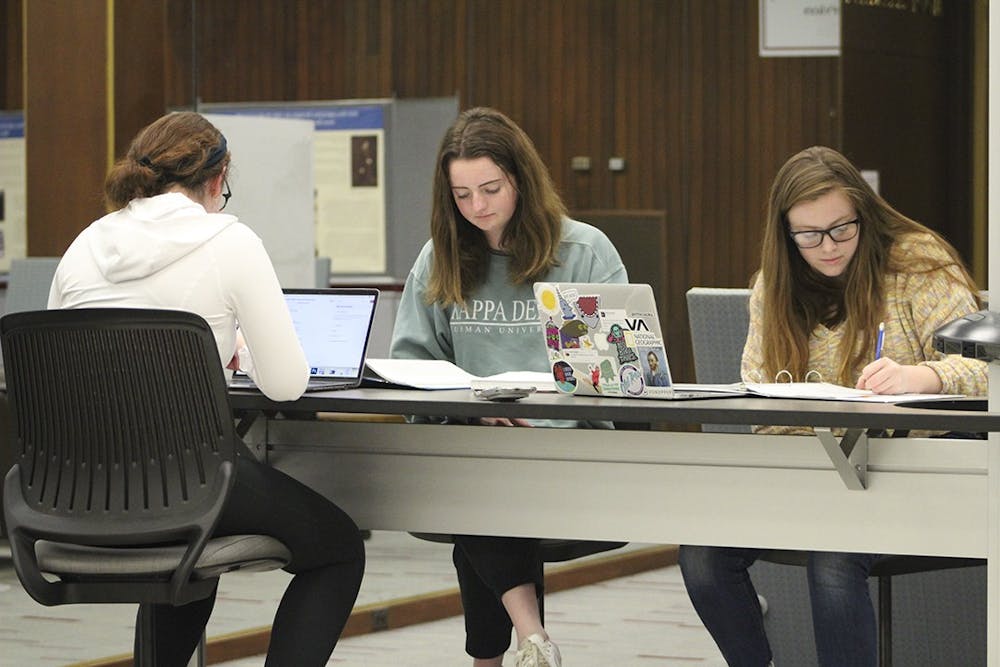Making friends in your classes can be a rewarding experience, and it only takes a little effort from you to get the conversation started. Though many students decide to brave the slog of challenging course material on their own, taking the time to make friends in a class can make learning the material and studying for the tests a little more bearable.
Meeting students in your classes can give you a study partner, help you keep up with coursework and potentially form a lifelong friendship.
Spending the time before or after class to arrange a study time with a friend from class can be very helpful in test prep.
In an article for The Source, a publication of Washington University in St. Louis, Neil Schoenherr wrote that in an experiment performed by R. Keith Sawyer, students used group study sessions to explain and paraphrase information to each other, which helped them “make the material their own.”
There are also less concentrated benefits, such as those highlighted in the Top Universities article, “Joining a Study Group: The Benefits.” Students might get more out of group study than self-study because they can determine their weaker topics, combine notes and avoid procrastination.
Aside from study groups, having a buddy in the same classes as you can contribute other benefits that will make it easier to stay on top of classwork. In a review of Janice McCabe's book “Connecting in College: How Friendship Networks Matter for Academic and Social Success,” Kasia Kovacs of Inside Higher Ed said: “[Friends] proofread one another’s papers, reminded each other of due dates, provided emotional support with affirmations ... engaged each other in intellectual discussions and motivated each other through friendly competition.”
These encouragements add up. McCabe’s book was also covered by NPR’s Anya Kamenetz, who wrote, “among the students who said their close group of friends provided academic motivation and support, every one of them graduated.”
One of the most prominent trends of friendship networks McCabe studied, which she called “compartmentalizers,” “had at least one group of friends that was more academically oriented, and one that was more social.” Students that developed this type of network tended to be "from more privileged backgrounds" and “tended to do well in college,” according to Kamenetz.
Lastly, making friends in college and bonding over what seems like endless homework and studying can lead to friendships that can last you past your years at USC.
Glenn Sparks at Purdue University researched the longevity of college friendships. In Amy Patterson Neubert’s report about the study, she quoted Sparks and said: “The long-term friendships that showed up in this study provide a sense of a shared history that can be a rarity in today's changing environment.”
Taking time to learn together can create that shared history that will go with us once we leave university and allows us to network with our peers. These friendships can result in both emotional and career connections if we invest in our relationships well.
Even though it might seem a bit awkward to step out and introduce yourself to a classmate, taking the chance could be beneficial to your classwork and your college experience as a whole.

